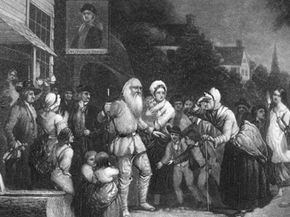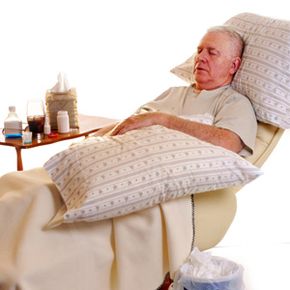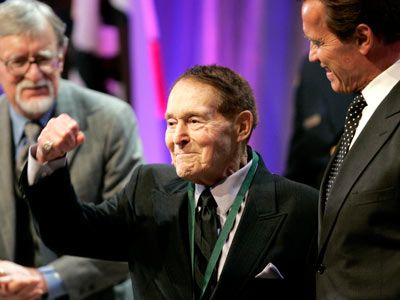Washington Irving's story of Rip Van Winkle is about a man who managed to sleep away 20 years of his life, returning home as an old man to find that his nagging wife was dead and the Revolutionary War had occurred. At the end of the story, the reader learns that Rip Van Winkle recounts the narrative of his long nap to everyone passing through town; some village residents believe it's true, and many a henpecked husband wishes it to be true, but there are some men, women and children that Rip Van Winkle never convinces.
Indeed, it might be hard to convince a child who's heard a grandparent complain of waking at 5 a.m. that an old person could sleep that long, and those middle-aged adults may have already figured out that nightlights are now an essential feature for those hourly trips to the bathroom. Sure, Rip Van Winkle may have had a long doze -- likely in front of a sporting event in the afternoon in a recliner -- but 20 years of sleep? That seems like a dream to most other people of advanced age.
Advertisement
Rip Van Winkle is indeed an anomaly among people in his age group. Though newborns sleep for most of the day, and though many teenagers may try to, most adults get by on about seven to nine hours of sleep. However, as people age, they're more likely to complain of a bad night's sleep and of sleep conditions including sleep-disordered breathing and insomnia. While insomnia is the most common sleep complaint at any age, it strikes 1 in 4 people over the age of 65 (as compared to 1 in 8 people in their 20s) [source: Elias].
Many things about sleep are still unsolved mysteries to scientists, including what goes on when we dream and why we need to sleep at all. Here's are some more puzzles for sleep researchers: Why does sleep change when we age? And is there any way for aging adults to recapture that ol' Rip Van Winkle magic? Let's take a look at what we know so far.
Advertisement



